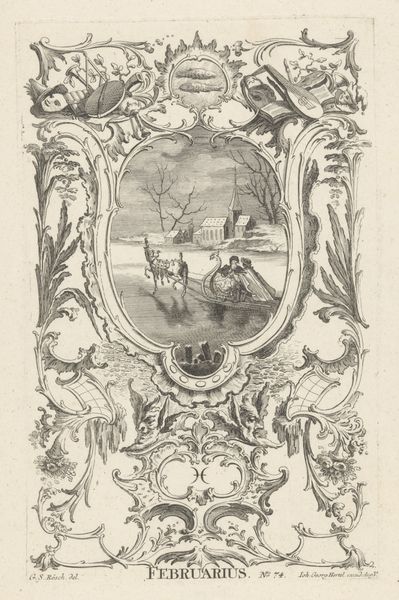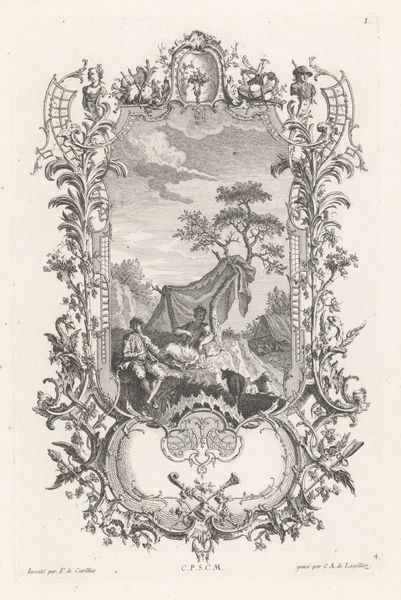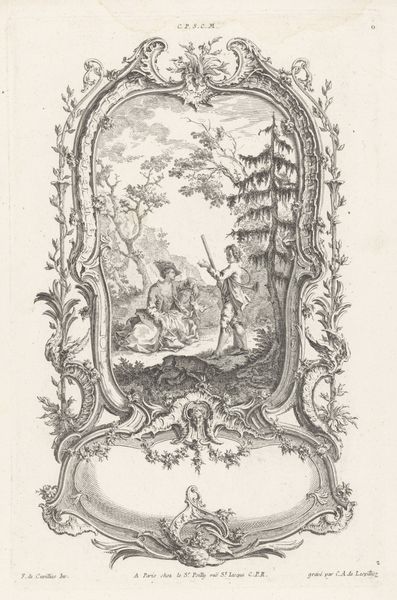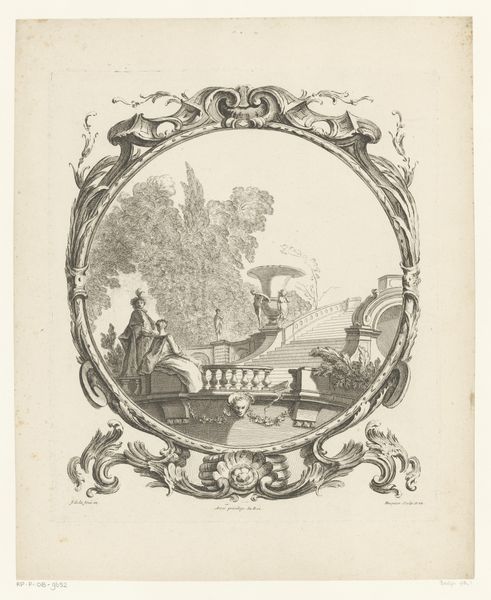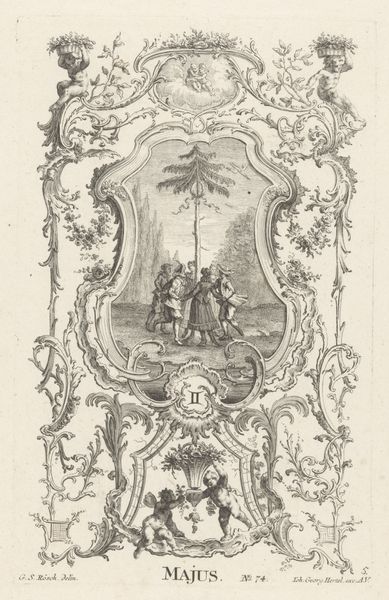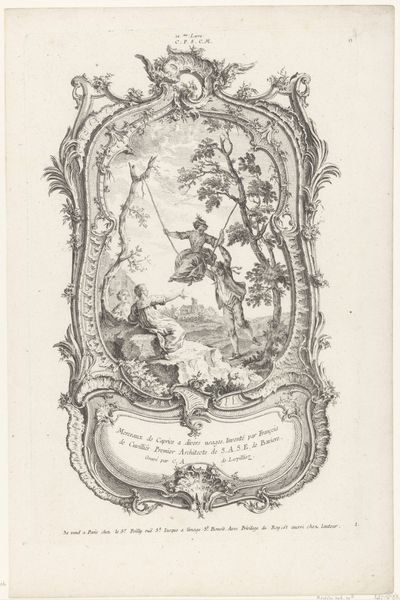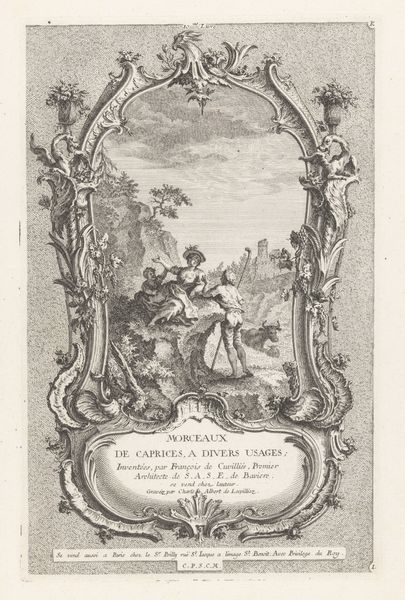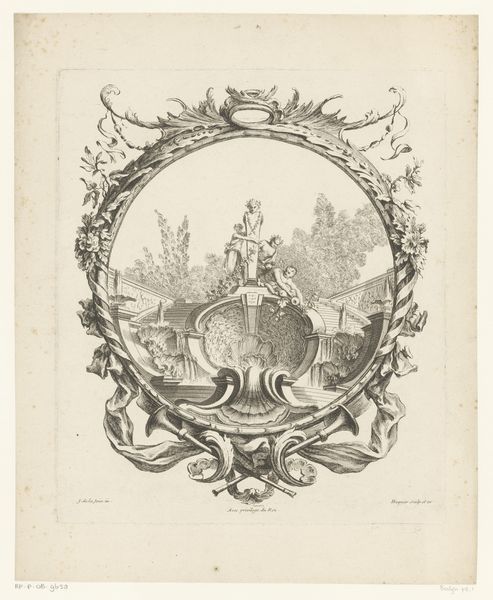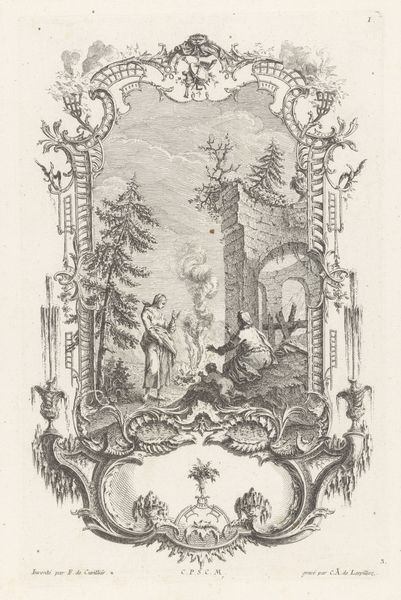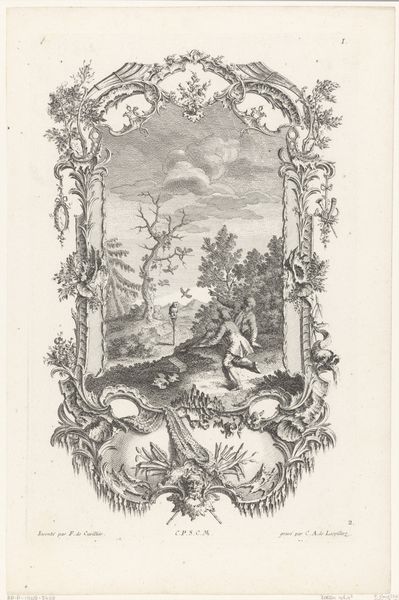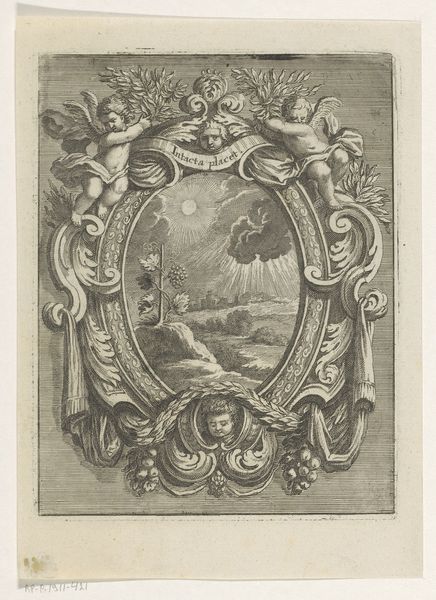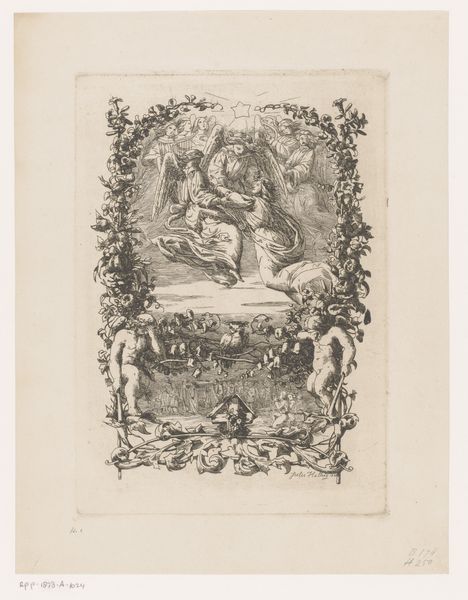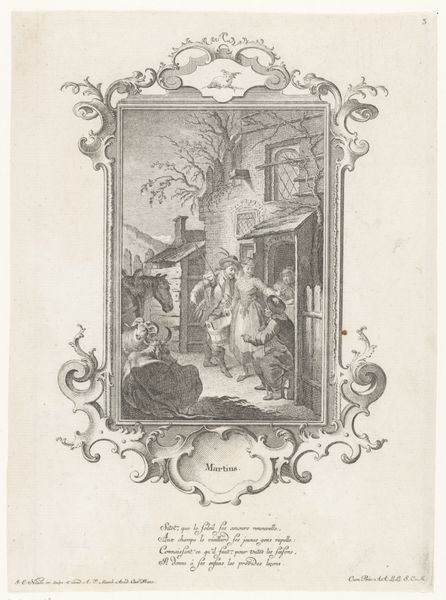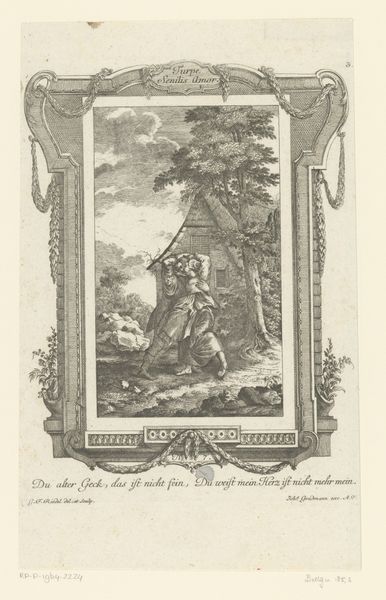
drawing, paper, ink
#
drawing
#
baroque
#
landscape
#
paper
#
ink
#
genre-painting
Dimensions: height 357 mm, width 229 mm
Copyright: Rijks Museum: Open Domain
Carl Albert von Lespilliez created this print, "Three Young Men by a Waterfall", sometime in the 18th century. Look closely at the Rococo frame in which the artist has placed the young men, fishing and relaxing by a waterfall. It gives us clues about the social function of the artwork and the cultural values it represents. Made in Germany during the height of the Enlightenment, Lespilliez's image romanticizes nature, but also reflects the growing importance of leisure and recreation among the middle classes. We can read the print as an expression of the changing social and economic conditions of 18th-century Europe, where the traditional aristocratic order was gradually being challenged by new ideas about individual freedom and the pursuit of happiness. Note also the self-conscious conservatism in the highly ornamented frame, perhaps a reminder of the traditional patronage structures of the art world. To gain a fuller understanding, we might consult period documents about social life, the history of landscape art, and the institutional context in which Lespilliez was working. Doing so reminds us that art is never created in a vacuum, but rather is shaped by the social forces of its time.
Comments
No comments
Be the first to comment and join the conversation on the ultimate creative platform.
